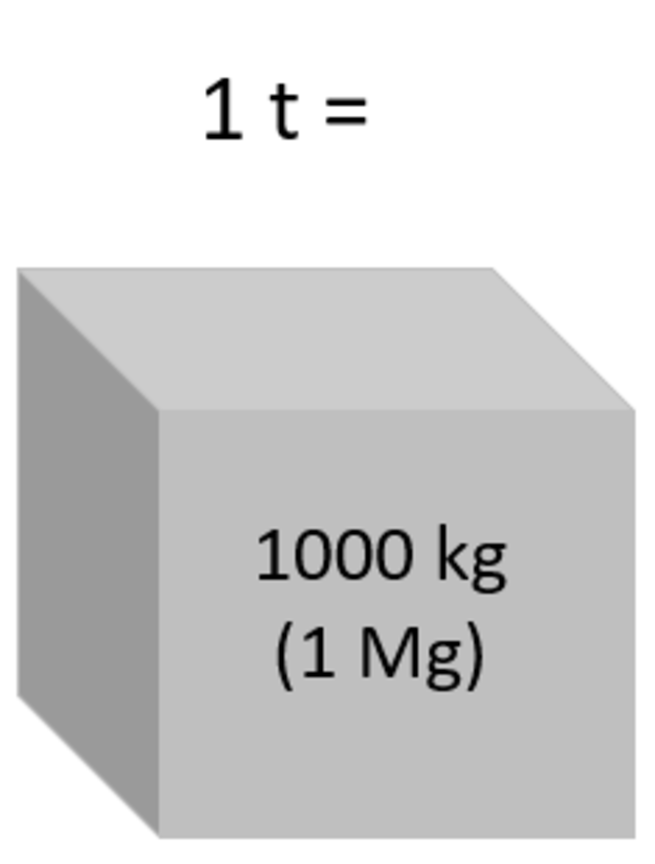Main Difference
The main difference between Ton and Tonne is that the Ton is a unit of mass or volume, varying by language and place and Tonne is a metric unit of mass.
-
Ton
The ton is a unit of measure. It has a long history and has acquired a number of meanings and uses over the years. It is used principally as a unit of mass. Its original use as a measurement of volume has continued in the capacity of cargo ships and in terms such as the freight ton. It can also be used as a measure of energy, for truck classification, or as a colloquial term.
It is derived from the tun, the term applied to a cask of the largest capacity. This could contain a volume between 175 and 213 imperial gallons (210 and 256 US gal; 800 and 970 l), which could weigh around 2,000 pounds (910 kg) and occupy some 60 cubic feet (1.7 m3) of space. The origin for the word ton comes from ancient Greek θύννος (thúnnos, tuna fish).
In the United Kingdom the ton is defined as 2,240 avoirdupois pounds (1,016 kg). This is equivalent to 20 hundredweight, a hundredweight being eight stone, and a stone weighing 14 pounds. From 1965 the UK embarked upon a programme of metrication and gradually introduced metric units, including the tonne (metric ton), defined as 1000 kg (2,204 lb). The UK Weights and Measures Act 1985 explicitly excluded from use for trade many units and terms, including the ton and the term “metric ton” for “tonne”.In the United States and Canada a ton is defined to be 2,000 pounds (907 kg).
Where confusion is possible, the 2240 lb ton is called “long ton” and the 2000 lb ton “short ton”; the tonne is distinguished by its spelling, but usually pronounced the same as ton, hence the US term “metric ton”. In the UK the final “e” of “tonne” can also be pronounced (), or “metric ton” when it is necessary to make the distinction.
Where accuracy is required the correct term must be used, but for many purposes this is not necessary: the metric and long tons differ by only 1.6%, and the short ton is within 11% of both. The ton is the heaviest unit of weight referred to in colloquial speech.
The term “ton” is also used to refer to a number of units of volume, ranging from 35 to 100 cubic feet (0.99 to 2.83 m3) in capacity.
It can also be used as a unit of energy, expressed as an equivalent of coal burnt or TNT detonated.
In refrigeration, a ton is a unit of power, sometimes called a ton of refrigeration. It is the power required to melt or freeze one short ton of ice per day. The refrigeration ton hour is a unit of energy, the energy required to melt or freeze 1⁄24 short ton of ice.
-
Tonne
The tonne ( ( listen)) (Non-SI unit, symbol: t), commonly referred to as the metric ton in the United States, is a non-SI metric unit of mass equal to 1,000 kilograms; or one megagram (Mg); it is equivalent to approximately 2,204.6 pounds, 1.102 short tons (US) or 0.984 long tons (imperial). Although not part of the SI, the tonne is accepted for use with SI units and prefixes by the International Committee for Weights and Measures.
-
Ton (noun)
A unit of weight (mass) equal to 2240 pounds (a long ton) or 2000 pounds (a short ton) or 1000 kilograms (a metric ton).
-
Ton (noun)
A unit of volume; register ton.
-
Ton (noun)
In h (about 3.514 kW or 3024 kcal/h), originally the rate of cooling provided by uniform isothermal melting of one short ton of ice per day at 32 °F (0 °C).
-
Ton (noun)
A large amount.
“I’ve got a ton of work to do.”
“I’ve got tons of work to do.”
-
Ton (noun)
A speed of 100 mph.
-
Ton (noun)
One hundred pounds sterling.
-
Ton (noun)
One hundred runs.
-
Ton (noun)
One hundred points.
-
Ton (noun)
Fashion, the current style, the vogue.
-
Ton (noun)
Fashionable society; those in style.
-
Tonne (noun)
A metric unit of mass equal to 1000 kilograms. Symbol: t
“metric ton|megagram”
-
Tonne (noun)
A score of 100.

